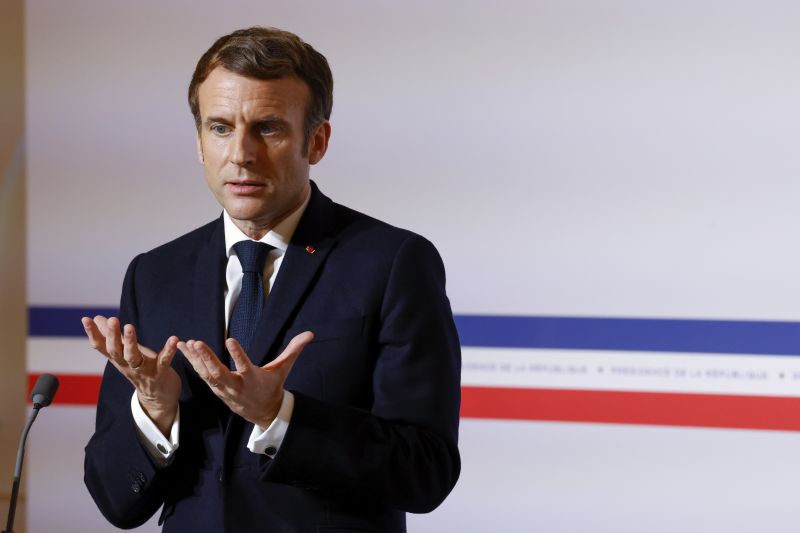
Never before has the far right appeared as strong in a French presidential campaign as it does now. That should concern everyone who cares about the future of rights and equity in France — but shouldn’t obscure the ways in which government policies are already intrusively targeting Islam.
According to recent polling, far-right candidates are poised to receive about 30 percent of votes in the election’s first round. For the first time, two figures from the far right seem almost equally likely to access the second round of the April election.
One of them in particular has garnered much attention. Éric Zemmour, a controversial pundit who officially declared his candidacy at the end of November, has managed to find a place for himself among the contest’s leaders. His violent anti-Islam stance has fared well with a significant number of voters, and he has launched a new party with the warlike name Reconquête (Reconquest). Zemmour, convicted multiple times for inciting hate speech, has pushed the boundaries of hate during the campaign, falsifying history to present his revisionist ideas about the role of France during the Holocaust.
Even candidate Marine Le Pen, the leader of the far-right National Rally, has distanced herself from Zemmour, saying that she was concerned that her campaign could be “caricatured” because of his “very radical comments.” She added that she was fighting “radical Islamism, which is an ideology. I do not fight against Muslims,” a new orientation to her discourse; she seems to be trying to look more reasonable, even if the core of her party’s ideas remains profoundly white supremacist and anti-immigrant. Zemmour, therefore, appears to be the most outrageous candidate — the one every other candidate uses to look good.
The rhetoric emanating from these candidates is rightly generating worry. But, in the process, no one seems to be noticing that the government is taking a troubling new approach to Islam.
In recent times, France has experienced several horrendous terrorist attacks committed by people who claimed Islam, and the need to protect citizens is becoming more and more pressing. So a recent bill pushed by President Emmanuel Macron’s government against “separatism,” now retitled as “reinforcing the principles of the Republic,” seemed timely and necessary to many.
But, as the law’s content was unveiled and it was subsequently adopted last year, several human rights organizations protested. The law includes a new legal framework for supervising home-schooling, creates a “republican commitment contract” for organizations seeking public funds, mandates greater reporting from religious associations and allows the government to dissolve religious organizations and close houses of worship.
Organizations including the League of Human Rights criticized the disproportionate aspects and dangers of the measures in a “text of division and security escalation,” which would “fragment French society” and “casts generalized suspicion against people of the Muslim faith.”
The Council of Europe described the bill as “problematic in many respects,” “targeting” and “stigmatizing” Muslims, and “indirectly suggesting a link between this group and foreign or terrorist threats.”
And the National Consultative Commission on Human Rights deplored the haste of the text’s creation, identifying “constraints and sanctions” against religious associations, infringements to fundamental freedoms and the spreading of mistrust.
Meanwhile, despite the 1905 principle of “laïcité” (French secularism) — based on which the state remains separate from religious affairs — the government has become more intrusive toward Muslim practices.
Several Muslim organizations have been dissolved or dismantled — one on grounds including that its fight against Islamophobia was “cultivating the suspicion of Islamophobia within French society.” Another was accused of not properly managing the comments section of its social media; it, too, was dissolved.
Moreover, Macron has pushed the French Council of the Muslim Faith to draft a charter to oversee the activities of imams. The document, released last year, is an incredible offense to freedom of expression and association. One of its articles says that “the denunciation of so-called state-sponsored racism is defamatory,” which would prevent any imam from criticizing institutional racism.
With such policies, the French republic is suddenly dropping its purported universalism, while also infantilizing Muslims.
Yet the Macron government is still being praised around the world. In December, French Finance Minister Bruno Le Maire was a guest on “The Daily Show With Trevor Noah.” He was presented as a strong opponent of the far right, who held the destiny of France and its unity in his hands. He made it seem as if his own government did not support a problematic agenda.
While Zemmour and the far right are a real threat to French democracy and fuel the most extreme form of racism, it is easy to position oneself against them without addressing what is currently occurring in France. Their campaigns should not distract from the danger of positions and policies that are being applied, with concrete consequences, by those currently in power.
Rokhaya Diallo is a French journalist, writer and filmmaker.
